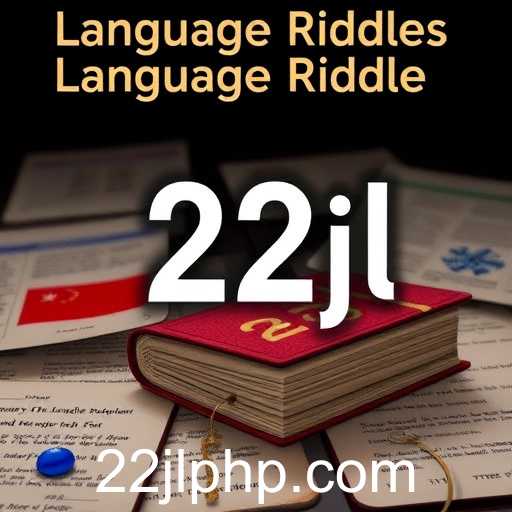Language Riddles: Deciphering the Secrets of 22jl
Understanding language has always been a cornerstone of human communication, culture, and connection. The advent of digital platforms has significantly transformed the ways in which languages are learned, shared, and used. One such transformation is the integration of interactive learning tools and games that creatively engage users. Among these is the game category ‘Language Riddles,’ found on a popular gaming website under the intriguing keyword ‘22jl.’ But what exactly makes Language Riddles so captivating, and why should anyone be interested in playing these games?
Language Riddles gamify the art of language, combining linguistic curiosity with the playful challenge of solving riddles. Each puzzle encourages players to engage with various facets of languages—from vocabulary and grammar to idiomatic expressions and word play. Designed to be accessible for language enthusiasts of all ages, these riddles come in a range of difficulties, catering to both novices who are just dipping their toes into language learning and experts who wish to test their mettle.
The keyword ‘22jl’ adds an extra layer of intrigue, serving perhaps as a cryptic signifier around which a community of solvers might gather. This code may also function as a metaphorical key that unlocks various stages or levels within the game, adding to the mysterious allure that often surrounds language-based games. Indeed, the idea of a secret or code forms the very essence of what riddles represent—a puzzle wrapped in enigma that demands linguistic intuition and analytical skills to crack.
Moreover, Language Riddles serve as a conduit for cultural exchange. Each riddle brings with it hints of the language’s origin, diving into etymologies, colloquialisms, and historical contexts that introduce solvers to the cultural backdrop against which the language evolved. This not only aids in the learning process but also fosters a deeper appreciation for linguistic diversity in our interconnected world.
As players progress through different riddles, they develop enhanced problem-solving skills, sharper critical thinking abilities, and greater linguistic dexterity. Such skills are invaluable in our increasingly globalized society, where multilingualism and cultural literacy are critical assets.
In conclusion, Language Riddles provide more than just a cerebral workout. They are an invitation to explore the rich tapestry of human language, offering fun and education in equal measure. By partaking in this linguistic adventure orchestrated around the mysterious keyword ‘22jl,’ players become part of a community that celebrates the timeless joy of learning and discovery.








